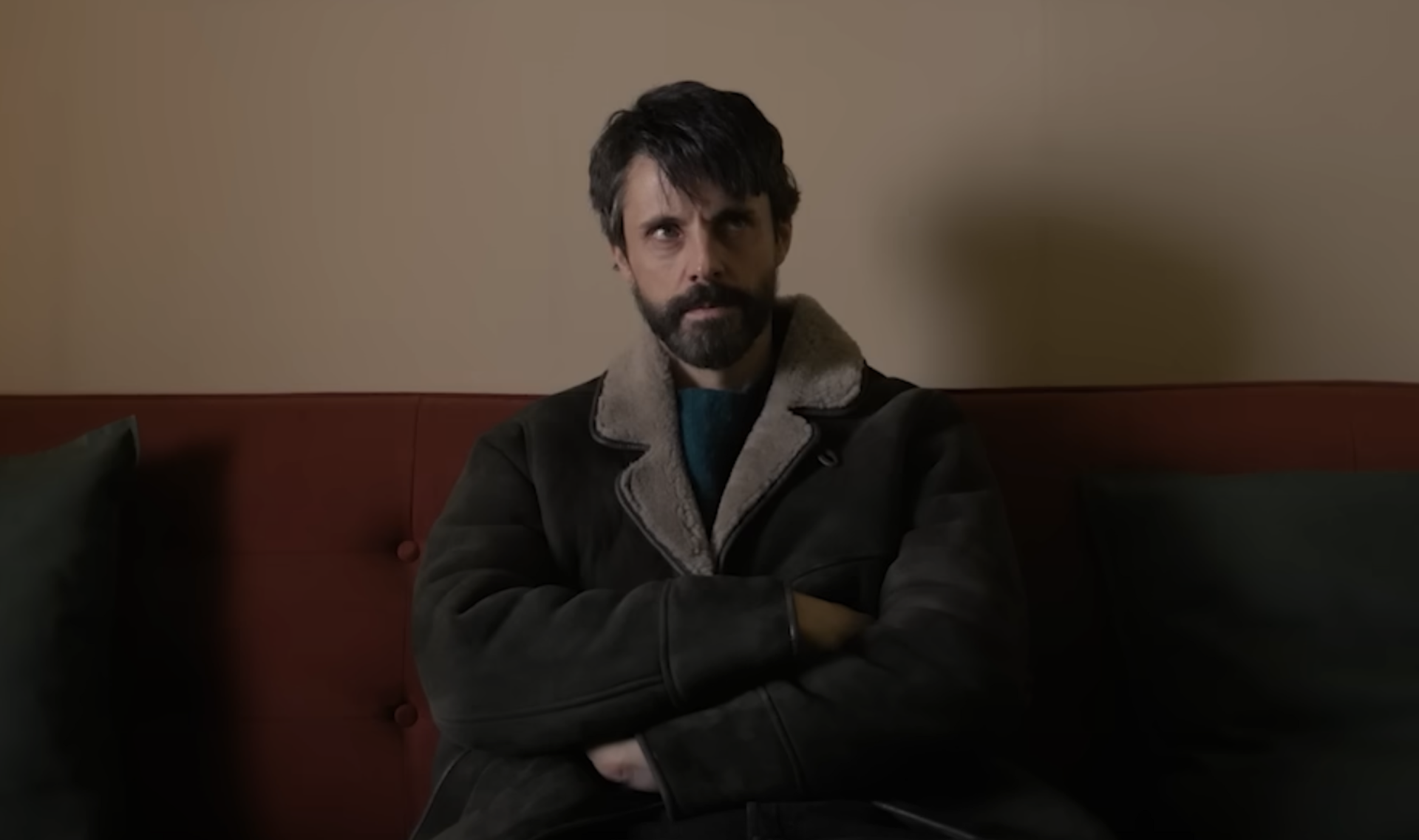There’s been this ongoing concern, I mean like in the air, for a while now, about people’s attention spans. I find it even creeping into my conversations. "Is this boring?" I'll ask a few minutes into a story. "Am I boring you?" People usually laugh and say something like, You'll know if I'm bored. But I never used to do that. I never used to be self-conscious about, I don't know, wasting time? I was listening to a podcast recently and Loyle Carner, this British musician, mentioned how grateful he was that this author he had read had basically summarized her whole book in the first chapter, because even when he has every good intention, he won't always finish the entire thing. He sounded sheepish about it. I don't know why. The fact that he reads is rare enough, right?
"Stick with it," my brother said when I started watching Dept. Q. "It's a slow burn." I mean, that's one way to put it. The first episode of Dept. Q is a SLOG. I was really excited going in—a Scottish show about a basement-dwelling trio of cold-case detectives starring a scruffy Matthew Goode and the amazing-faced actress Kate Dickie as his long-suffering boss? Yes, it sounds a little like Slow Horses, but how is that a bad thing? But then I started watching it and thought: Is this an assignment? This show looks like no one wants to be here, down to the set designer. Goode is phoning it in, the flashbacks are excessive, the pacing is so glacial it's basically stagnant. It was all so ... uninspiring, so generic, like someone fed "dark uk detective series" into an AI model. I couldn't figure out why this was happening: Did they not have much money? Was this Netflix's fault? I texted my brother midway through that first episode: "Are you using slow burn as a euphemism for boring?" He texted back: "Stick with it."
Dept. Q is nine episodes, each about an hour long. I didn't think I had the strength. But I kept watching that first one anyway. I watched as Detective Morck (Goode) kept denying through the anxiety attacks and the insomnia that he was affected by barely surviving a shooting that left his partner (Jamie Sives) paralyzed and another cop dead. I watched as he side-eyed his assigned therapist (Kelly Macdonald) who he has the hots for, as he underestimated the Syrian cop, Akram (Alexej Manvelov), he had been saddled with, and the talented young detective fresh off a breakdown (Leah Byrne) who talked her way onto his team. I watched as a parallel storyline that didn't seem to fit had a rigid prosecutor named Merritt Lingard (Chloe Pirrie) alienating everyone in her sphere, including Shirley Henderson (!!!), playing her housekeeper and the guardian to her brother (Tom Bulpett), who had a heavy disability I couldn't quite parse, which turned out to be dysphasia from a brain injury. I watched right to the end of the episode when, suddenly, out of nowhere, it surprised me. When a scene of Merrit and her brother on a ferry was juxtaposed with a file being flipped through on Morck's desk, and, suddenly, Merrit and her brother, in CCTV image form, were now in that file, because that was four years ago and Merrit has been missing ever since. This, of course, is Dept. Q’s first case.
Dept. Q slowly starts to pick up as the investigation gets under way, as it moves away from all the exposition around the main characters and the scene setting and all that junk. I don't want to be an old woman yelling at a cloud, but I don't know when exposition got so clunky. I don't remember it ever being this conspicuous before, but maybe that’s because shows used to trust their audience. Netflix trusts its audience probably the least of any studio that has ever existed, which means you have to be frog-marched through absolutely everything, usually multiple times, until you are bored out of your skull. It's funny how they expect people to have no attention span and yet at the same time expect them to willingly suffer through that level of prosaic repetition. Dept. Q really takes off in Episode 4, when all that stuff has been put to rest and the detectives start their interviews—among them Merrit's former supervisor, played by a frosty Mark Bonnar, who seems more than a little suspect—and the mystery really starts to grip you.
The show drags because it’s not supposed to be nine hours. Dept. Q is based on a series of Danish crime novels of the same name by Jussi Adler-Olsen, its first season adapted from the first of its 10 books, The Keeper of Lost Causes. If you are a Scandi-noir person like me, you may have seen the film adaptation from 2013, starring the curly lipped Nikolaj Lie Kaas (also of the original The Killing) and the gorgeous Fares Fares. And you may know that film, which isn't even that fast-paced itself, clocks in at 1 hour and 36 minutes.
There's one scene in Dept. Q that really benefited from that extra 7 hours and 24 minutes. (I didn’t mean that to sound like a joke.) To provoke a creeping sense of discomfort, you need time. From everyone. And in this scene specifically, the offness definitely burns slow. In one sense, it's a throwaway scene—Morck is basically set up to lose his temper in public, presumably so that he will be taken off the case—but it ends up meaning so much more than that. In it, Morck's stepson Jasper (Aaron McVeigh)—a horny teenager with so much bravado he thinks he's old enough to move out—is in what appears to be a cafe near his school. The place is decorated in pastel gingham, like an old-school tea shop, and Jasper is minding his business in the center of it all when a man in a suit walks in and takes a seat opposite him—though he's a big ruddy-faced man, so he doesn't actually sit, he encroaches. "You can FEEL who I am, can't you?" the man says, which is strange enough, but then when Jasper tries to leave, the man grabs his knee, HARD, kind of like he’s enjoying it, and says, "Imagine this was your young balls." The way he says "young," the way he then says, "I'm not so bad to look at, am I?" The way he makes Jasper repeat it. The way he tells Jasper, "You're nice to look at," you can see where this is going, which doesn't make it any less shocking to hear him dictate in graphic detail all the ways this boy could be abused by men like him.
Like I said, the scene is designed for Goode's character to come in, clock the situation—McVeigh does a really good job of showing relief at the same time as abject fear here—and then proceed to beat the hell out of the man. But all I could think after I watched that scene was how far Dept. Q had come. How a show that almost asks you to give up on it, if you keep with it, if you pay attention, can be the same show that perfectly depicts how the creep of depravity can inch its way into the monotony of everyday life, until you have no hope of ever escaping it.






